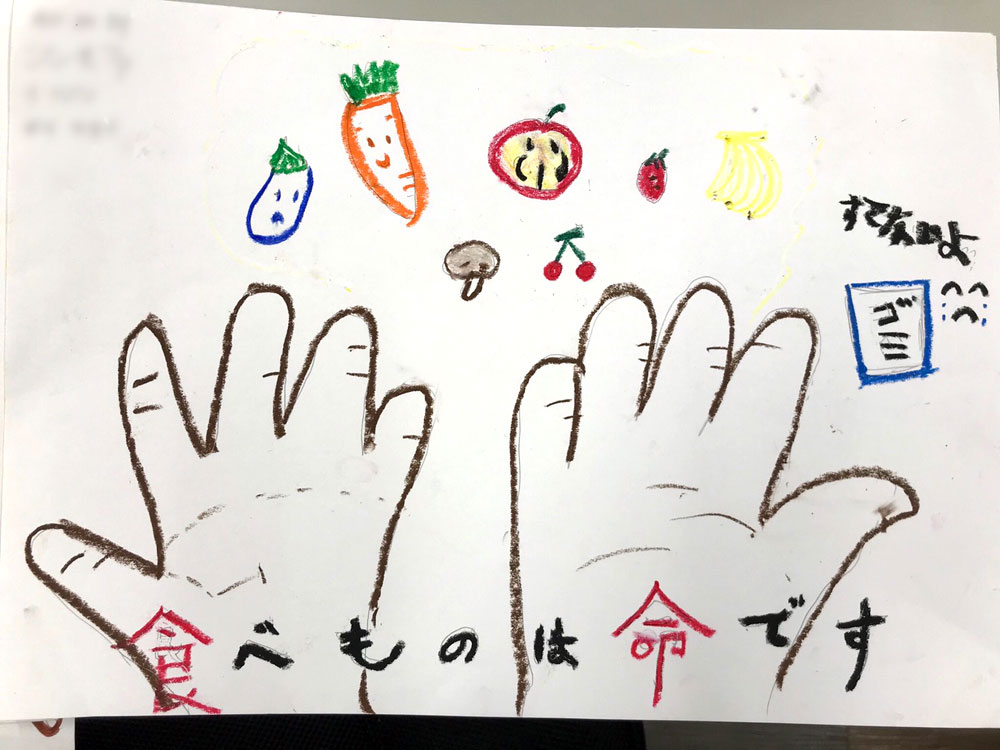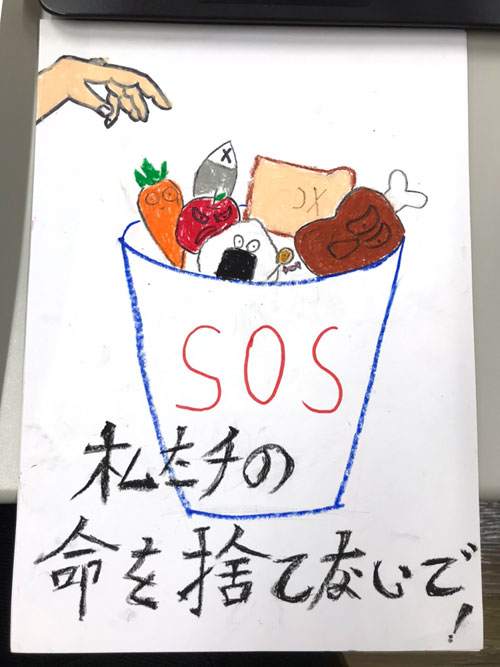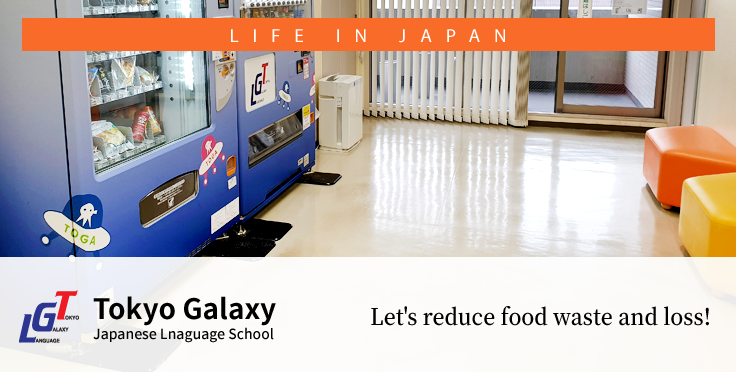Food waste and loss is one of the issues that are attracting great interest recently in Japan.
It is about food that is uneaten and discarded.
According to the Japanese Ministry of Agriculture, Forestry and Fisheries, 27.59 million tons of food waste and lossoccursannually in Japan. Of this, uneaten food discarded by households and commercial establishments, which is usually referred to as“food loss” in Japan,is about 6.43 million tons, which accounts for almost a quarter of all waste.
The United Nationshave a branch called the World Food Program (WFP), which provides food to people suffering from hunger in so-called developing countries. The total food provided by WFP in 2017 was 3.8 million tons. That means the amount of food uneaten and discarded by Japan alone was 1.7 times greater than the amount of food aid provided by the whole world.

Therefore, various efforts are being made in Japan to reduce food loss.
The annual amount of industrial food loss in Japan is 3.52 million tons, and food losses from households are 2.91 million tons.
Food businesses are utilizing the food bank system, in which they donate close-to-date products for peoplesuffering from disasters such as earthquakes,or those suffering from poverty.
One of the actions lead by food businesses that we can participate is called food sharing. Many of such activities are accessible through mobile phone apps. There are twokinds of food sharing systems: discount systems and flat-rate systems.
Suppose, for example, a bakery did not sell well for the day, and there was some unsold bread left, which the store had no other choice but to throw away.
Food sharing apps enable us to make good use of such excess products; by discount-type apps, customers can make pre-orders for the bread and get them at half price if they can arrive at the store before the closing time of the day.
Another example is a lunch box shop, which offers productsfor freeto customers who have subscribed to a flat-rate service, when they have remaining lunch boxes they could not sell out.
This will produce a win-win-win outcome; the shop will be able to make some profit from products that had to be discarded, consumers can purchase delicious food inexpensively, and the amount of food loss can be reduced.

There are also apps that prevent food loss from home.
It is known that the main cause of food loss from householdsis overbought food which is purchased at bargain prices. In many cases, people are throwing away food that can still be eaten. A mobile phone application will help you by automatically recording the expiration date when you read the barcode of the food and giving a cautionary warning when the date approaches.
You can also use a “freshness-keeping bag” that keeps freshness when vegetables are put in.
If you come to Japan to study and live by yourself or live in a dormitory, you will be able to benefit economically as a result of living with care for food loss.
Students of Tokyo Galaxy Japanese Language School recently created a poster to raise awareness about reducing food loss.
Everyone can benefit from small changes; individuals, businesses and the environment will all receive benefits from small efforts made by each one of us.
Why don’t you participate in activities to reduce food loss?
